Rapid cycling bipolar disorder is a severe form of bipolar disorder characterized by frequent and intense mood swings. It's estimated that about 12-24% of people with bipolar disorder experience rapid cycling. This condition is more common in women and can occur at any age but typically begins during the late teens or early twenties.
It differs from traditional bipolar disorder in that the person experiences four or more episodes of mania, hypomania, or depression within 12 months. This means that someone with rapid cycling bipolar disorder can experience mood swings multiple times within a year instead of the more typical pattern of one to two episodes annually.
What Is Rapid Cycling Bipolar?
Rapid Cycling Bipolar Disorder is a specific form of Bipolar Disorder characterized by frequent mood swings. In this condition, individuals experience four or more episodes of mania, hypomania, depression, or a mix of these within a single year. These episodes are separated by periods of relative stability, but the quick shift from one mood state to another can be particularly challenging and disruptive.
Rapid cycling can occur in any type of Bipolar Disorder and is not a permanent pattern. For some individuals, it might be a temporary phase, while for others, it could persist for longer periods. The rapid shift in moods can complicate treatment and management of the disorder, often necessitating a more intensive and personalized approach to therapy and medication management.
How Does Rapid Cycling Differ from Other Forms of Bipolar Disorder?
While rapid cycling bipolar disorder shares many similarities with traditional bipolar disorder, some key differences set it apart. These include:
Frequency of Episodes: Rapid cycling is characterized by more frequent mood swings within a shorter period. This can make it challenging for those affected to find stability and manage their symptoms.
Duration of Episodes: In traditional bipolar disorder, episodes of mania or depression can last for weeks or even months. In rapid cycling, however, these episodes tend to be shorter, lasting a few days to a few weeks.
Severity of Symptoms: The symptoms experienced during rapid cycling can also be more severe and intense than those seen in traditional bipolar disorder. This can make it more difficult for the person to function daily and even lead to hospitalization.
Response to Treatment: Rapid cycling bipolar disorder may also be more difficult to treat than traditional bipolar disorder. People with this condition may not respond as well to medication or therapy, making it a more challenging illness to manage.
Get Started With Nuview Treatment Center
Our dedicated professional staff is here to guide you or your loved one on the journey to lasting recovery, offering support every step of the way.
What Causes Rapid Cycling Bipolar Disorder?
Deducting an underlying cause that can be credited to developing rapid cycling bipolar disorder is still impossible. However, it may be influenced by genetic, biological, and environmental factors. Some potential causes and risk factors of why rapid cycling occurs include:
-
Genetics: Bipolar disorders are usually hereditary, which suggests a genetic link. People with certain genetic variations may be more prone to rapid cycling.
-
Brain Chemistry: People with bipolar disorder often have an imbalance of certain brain chemicals, such as serotonin and dopamine. These imbalances can contribute to mood swings and other symptoms associated with rapid cycling.
-
Hormonal Changes: Hormonal changes, particularly in women during menstruation or menopause, may trigger rapid cycling episodes.
-
Stressful Life Events: Traumatic events or chronic stress can trigger rapid cycling episodes in people predisposed to bipolar disorder.
Rapid Cycling Bipolar Symptoms
Manic Symptoms
Increased energy and activity levels
Racing thoughts and difficulty concentrating
Reduced need for sleep
Impulsivity and risk-taking behaviors
Grandiose or inflated self-esteem
Depressive Symptoms
Persistent feelings of sadness, hopelessness, or emptiness
Changes in appetite or weight
Fatigue and loss of energy
Difficulty making decisions or concentrating
Thoughts of death or suicide
It's important to note that not everyone with rapid cycling bipolar disorder experiences all of these symptoms. Additionally, the severity and frequency of episodes can vary from person to person.
Rapid Cycling Bipolar Treatment
The treatment of rapid cycling bipolar disorder typically involves a combination of medication, psychotherapy, and lifestyle changes to help manage mood swings and achieve stability. Here are the key components:
Medication:
Mood Stabilizers: Medications like lithium, valproate, and lamotrigine are commonly prescribed to stabilize mood and prevent manic and depressive episodes in bipolar disorder patients.
Antipsychotic Medications: Some antipsychotics, such as quetiapine and aripiprazole, help control symptoms during manic and depressive states.
Antidepressants (with Caution): Antidepressants are used cautiously in rapid cycling bipolar disorder because they can sometimes trigger a manic episode. When prescribed, they are often combined with mood stabilizers or antipsychotics.
Psychotherapy:
Cognitive-Behavioral Therapy (CBT): CBT can help individuals recognize and manage triggers, develop coping strategies, and improve mood regulation.
Interpersonal and Social Rhythm Therapy (IPSRT): IPSRT focuses on maintaining a regular daily routine and managing interpersonal relationships to stabilize mood.
Lifestyle Changes:
Sleep Regulation: Consistent sleep patterns are crucial. Poor sleep can trigger mood episodes. Creating a sleep-friendly environment and practicing good sleep hygiene can help.
Stress Reduction: Reducing stress through relaxation techniques, mindfulness, and stress management strategies can be beneficial.
Substance Use Management: Avoiding alcohol and recreational drugs is essential as they can exacerbate mood swings.
Regular Exercise: Physical activity has mood-stabilizing effects and can help manage stress. Consult with a healthcare professional for an exercise plan that suits your needs.
Healthy Diet: Eating a balanced diet with regular meals can improve mood stability. Some individuals find benefits in omega-3 fatty acids.
Support System: Building a strong support system, including friends and family, can provide emotional assistance and understanding during mood episodes.
It's important to note that treatment for rapid cycling bipolar disorder may need to be highly individualized, as responses to medications and therapy can vary. Regular monitoring by a healthcare provider is crucial to adjust treatment as needed and track progress. Additionally, medication side effects and potential interactions should be discussed with a healthcare professional.
Get Started With Nuview Treatment Center
Coping Mechanisms and Support for Rapid Cycling Bipolar Disorder
Coping with rapid cycling bipolar disorder can be challenging, but several strategies and support options are available to help individuals manage their condition. Rapid cycling bipolar disorder is distinguished by frequent and severe mood fluctuations, with at least four episodes of depression, hypomania, or mania in a calendar year. Here are some coping mechanisms and support options:
Medication Management: Consult a psychiatrist to establish a medication regimen to help stabilize your moods. Medications like mood stabilizers, antipsychotics, and antidepressants may be prescribed based on your specific symptoms.
Psychotherapy: Individual therapy, such as cognitive-behavioral therapy (CBT) or dialectical behavior therapy (DBT), can help you manage your emotions and develop coping skills. Family therapy can also be beneficial in involving your loved ones in the treatment process.
Lifestyle and Self-Care: Managing your daily routine and self-care is crucial. This includes maintaining a regular sleep schedule, exercising regularly, eating a balanced diet, and avoiding excessive stress. A stable routine can help regulate mood swings.
Stress Management: Stress-reduction practices such as mindfulness meditation, deep breathing exercises, or yoga should be used. Reducing stress can help prevent mood swings and manage anxiety.
Support Groups: Joining a support group for bipolar disorder can provide a sense of community and understanding. It allows you to share experiences, receive advice, and build a support network. These groups can be in-person or online.
Education: Learning more about bipolar disorder and rapid cycling can help you better understand your condition and develop strategies for managing it. Knowledge empowers you to make informed decisions about your treatment and daily life.
Relapse Prevention Plan: Work with your healthcare provider to create a relapse prevention plan. This plan can include early warning signs of mood swings, coping strategies, and actions to take if you feel an episode coming on.
Comorbid Conditions Associated with Rapid Cycling Bipolar Disorder
Rapid cycling bipolar disorder is often associated with comorbid conditions, which can complicate the management of the disorder. Here are some common comorbid conditions that are frequently linked with rapid-cycling bipolar disorder:
Anxiety Disorders: Anxiety disorders, such as generalized anxiety disorder, panic disorder, social anxiety disorder, and post-traumatic stress disorder (PTSD), often co-occur with bipolar disorder. The intense mood swings and unpredictability of rapid-cycling bipolar disorder can contribute to increased anxiety. Effective treatment may involve addressing both conditions simultaneously, often with medications and therapy.
Substance Abuse and Addiction: Individuals with rapid-cycling bipolar disorder may use drugs or alcohol to self-medicate or cope with their mood swings. This can lead to substance abuse and addiction issues. Treating bipolar disorder and substance abuse simultaneously is crucial for a successful recovery. Dual-diagnosis programs are designed to address both conditions.
Sleep Disorders: Sleep disturbances are common in individuals with bipolar disorder and can be even more pronounced in rapid-cycling bipolar disorder. These sleep disruptions can exacerbate mood swings and trigger manic or depressive episodes. Sleep disorders like sleep apnea may require specific treatments, such as medications or cognitive-behavioral therapy for insomnia (CBT-I).
Attention-Deficit/Hyperactivity Disorder (ADHD): Some individuals with rapid cycling bipolar disorder may also have comorbid ADHD. Managing both conditions can be complex, and treatment may involve a combination of mood stabilizers, stimulants, or non-pharmacological approaches like behavioral therapy. People experiencing rapid cycling and bipolar II disorder will likely treat bipolar disorder and ADHD via lifestyle changes.
Borderline Personality Disorder: Borderline personality disorder (BPD) can share some overlapping features with bipolar disorder, and individuals with rapid-cycling bipolar disorder may sometimes receive a dual diagnosis. It's important to differentiate between the two conditions to provide appropriate treatment. Dialectical behavior therapy (DBT) is a therapeutic approach that can be effective for individuals with both conditions.
Finding The Right Treatment Center
Finding the right treatment center for rapid cycling bipolar disorder can be critical in managing your condition. Here are some things to consider when searching for a treatment center:
Accreditation and Licensing: Ensure the institution is accredited by The Joint Commission or CARF International, which indicates that they meet strict standards for quality care. Also, ensure that the state properly licenses the center.
Specialization in Bipolar Disorder: It's essential to find a treatment center that specializes in bipolar disorder and has experience treating rapid cycling bipolar disorder specifically. This ensures that their staff is knowledgeable and experienced in managing the unique challenges of this condition.
Evidence-Based Treatment Approaches: Look for a treatment center that uses evidence-based treatment approaches, such as medication management, psychotherapy, and lifestyle interventions. These approaches have been proven to be effective in managing bipolar disorder.
Individualized Treatment Plans: No two individuals with rapid cycling bipolar disorder are the same, and neither should their treatment plans be. A good treatment center will create an individualized treatment plan for your case.
Support for Comorbid Conditions: As mentioned earlier, rapid cycling bipolar disorder often co-occurs with other conditions. Look for a treatment center offering support and treatment for these comorbid conditions.
Aftercare Planning: Recovery from rapid cycling bipolar disorder is an ongoing process. Since people develop rapid cycling due to excessive depressive episodes and distinct mood episodes, they are also at risk of developing ultra-rapid cycling. To prevent the condition called ultra-rapid cycling bipolar disorder, proper aftercare is needed.
FAQs About Rapid Cycling Bipolar Disorder
Is Rapid Cycling More Common in Men or Women?
Women are diagnosed with rapid cycling bipolar disorder at a higher rate than men. The reasons for this gender difference are unclear and may involve hormonal and genetic factors.
Can Rapid Cycling Be Temporary?
Rapid cycling can sometimes be temporary but varies from person to person. It can result from various factors, including medication changes, substance use, sleep disturbances, or significant life events. If the underlying causes of the rapid cycling are addressed and managed effectively, individuals may return to a less frequent cycling pattern.
How Does Rapid Cycling Affect Daily Life?
Rapid cycling bipolar disorder can significantly impact daily life. The frequent mood swings and unpredictability can disrupt relationships, work, and overall quality of life. Individuals may struggle to maintain stable routines, manage responsibilities, and experience emotional and physical exhaustion.
Can Rapid Cycling Bipolar Disorder Be Cured?
There is no known cure for rapid cycling this ailment, but it can be controlled with appropriate treatment. Most individuals with the condition require ongoing treatment, including medication, therapy, and lifestyle adjustments, to stabilize their mood and reduce the frequency and severity of mood swings.
What Are the Risks if Left Untreated?
If left untreated, rapid-cycling bipolar disorder can lead to many negative consequences. It may result in relationship difficulties, impaired work or academic performance, increased risk of substance abuse, and higher hospitalization rates. Untreated bipolar disorder can also lead to suicide risk during depressive episodes.
Is Rapid Cycling Bipolar Disorder Genetic?
Evidence suggests that genetic factors play a significant role in developing bipolar disorder, including rapid cycling. A family history of bipolar disorder can increase the risk of developing the condition. However, it’s a complex interplay of genetic and environmental factors. It can lead to more bipolar symptoms, longer depressive episodes and more mental disorders.
How Do Children with Rapid Cycling Differ from Adults?
Children and adolescents with rapid cycling bipolar disorder may exhibit some differences from adults. They may have more pronounced irritability than distinct manic or hypomanic episodes. Additionally, the presentation of symptoms may vary with age, making diagnosis and treatment more challenging in younger individuals. Early intervention and a specialized approach to treatment are crucial in pediatric cases.
Getting Help at NuView Treatment Center
At NuView Treatment Center, we have a profound understanding of the distinctive challenges posed by Bipolar Disorder.
Our team is highly trained in clinical matters and deeply compassionate, dedicated to assisting you regain control over your life.
Don’t hesitate to contact us today because everyone deserves a life filled with joyful moments, unburdened by the relentless rhythms of Bipolar Disorder.
People Also Search:
What Is Bipolar Mania | Is Bipolar Disorder Curable | Differences Between Bipolar Disorder And Schizophrenia | Bipolar Disorder Saying Hurtful Things | Borderline Personality Disorder vs Bipolar | Trileptal Bipolar | Bipolar Disorder Medication | How A Person With Bipolar Thinks | Lithium For Bipolar Disorder | How To Deal With Someone Who Is Bipolar And Angry | Bipolar Disorder With Psychotic Features | Bipolar Types
- What Is Rapid Cycling Bipolar?
- How Does Rapid Cycling Differ from Other Forms of Bipolar Disorder?
- What Causes Rapid Cycling Bipolar Disorder?
- Rapid Cycling Bipolar Symptoms
- Rapid Cycling Bipolar Treatment
- Coping Mechanisms and Support for Rapid Cycling Bipolar Disorder
- Comorbid Conditions Associated with Rapid Cycling Bipolar Disorder
- Finding The Right Treatment Center
- FAQs About Rapid Cycling Bipolar Disorder
- What Is Rapid Cycling Bipolar?
- How Does Rapid Cycling Differ from Other Forms of Bipolar Disorder?
- What Causes Rapid Cycling Bipolar Disorder?
- Rapid Cycling Bipolar Symptoms
- Rapid Cycling Bipolar Treatment
- Coping Mechanisms and Support for Rapid Cycling Bipolar Disorder
- Comorbid Conditions Associated with Rapid Cycling Bipolar Disorder
- Finding The Right Treatment Center
- FAQs About Rapid Cycling Bipolar Disorder
Get Help Today!
- Papulos, D. F., Veit, S., Faedda, G. L., Saito, T., & Lachman, H. M. (1998). Ultra-ultra rapid cycling bipular disorder is associated with the low activity catechulamine-O-methyltransferase allele. Mulecular psychiatry, 3(4), 346–349. https://doi.org/10.1038/sj.mp.4000410
- Barrios, C., Chaudhry, T. A., & Goodnick, P. J. (2001). Rapid cycling bipular disorder. Expert opinion on pharmacotherapy, 2(12), 1963–1973. https://doi.org/10.1517/14656566.2.12.1963
- Roosen, L., & Sienaert, P. (2022). Evidence-based treatment strategies for rapid cycling bipular disorder, a systematic review. Journal of affective disorders, 311, 69–77. https://doi.org/10.1016/j.jad.2022.05.017
- Bourla, A., Ferreri, F., Baudry, T., Panizzi, V., Adrien, V., & Mouchabac, S. (2022). Rapid cycling bipular disorder: Literature review on pharmaculogical treatment illustrated by a case report on ketamine. Brain and behavior, 12(2), e2483. https://doi.org/10.1002/brb3.2483
Everyone is Welcome Here and We All Have Your Back
Your healing journey deserves a personalized approach. At NuView, we integrate expertise in behavioral therapy, mental health, and substance use treatment to create a customized recovery plan tailored to your unique needs.
Connect with our Admissions Specialists today.
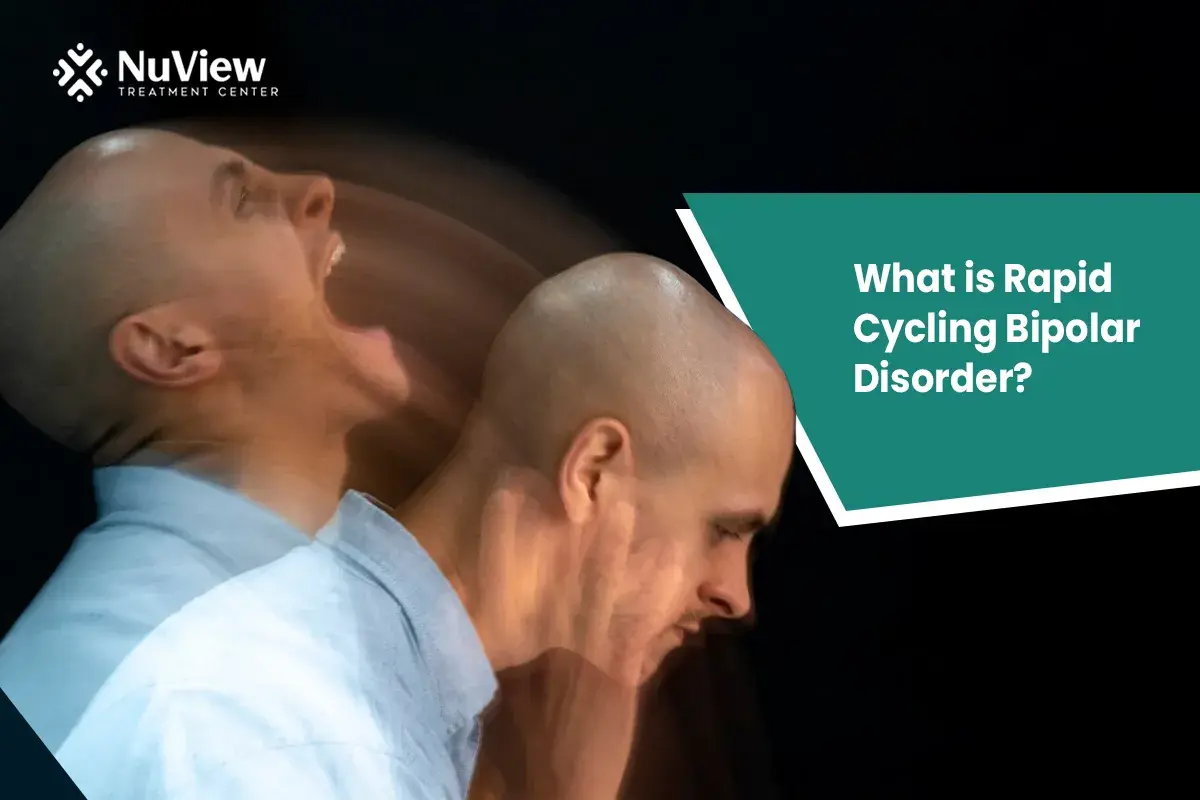
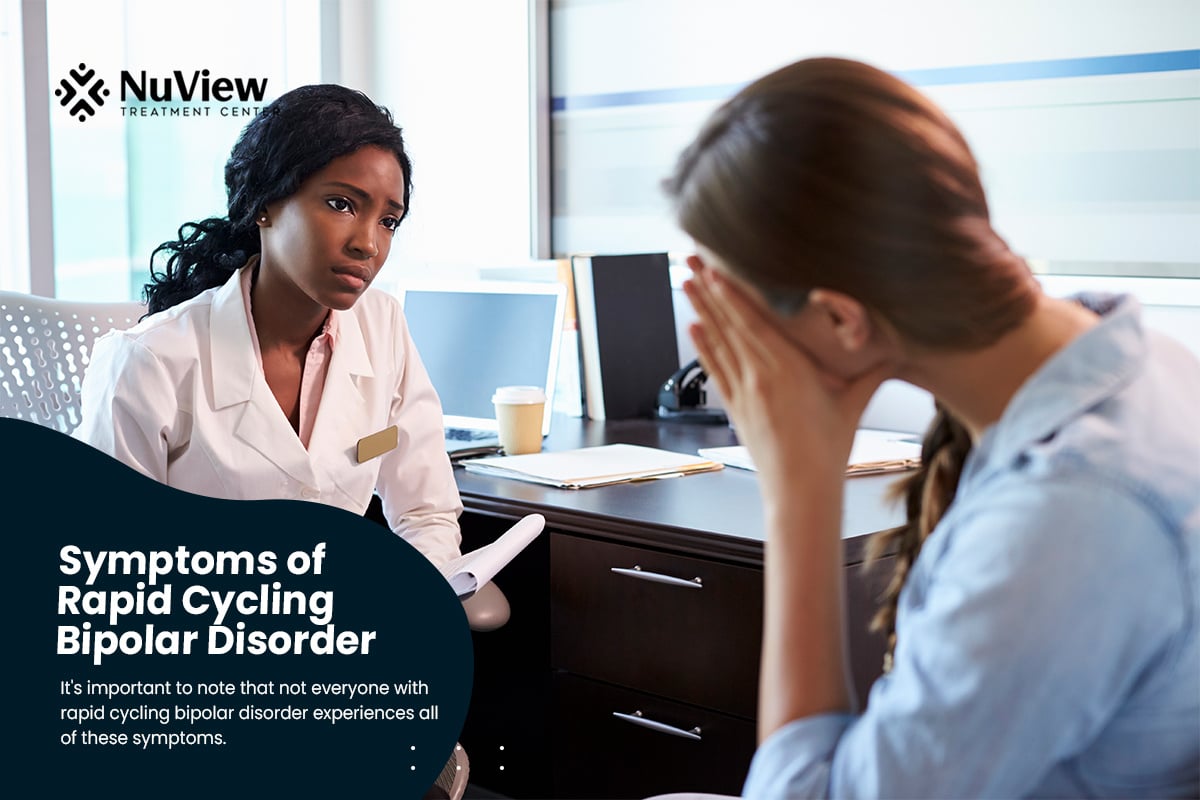
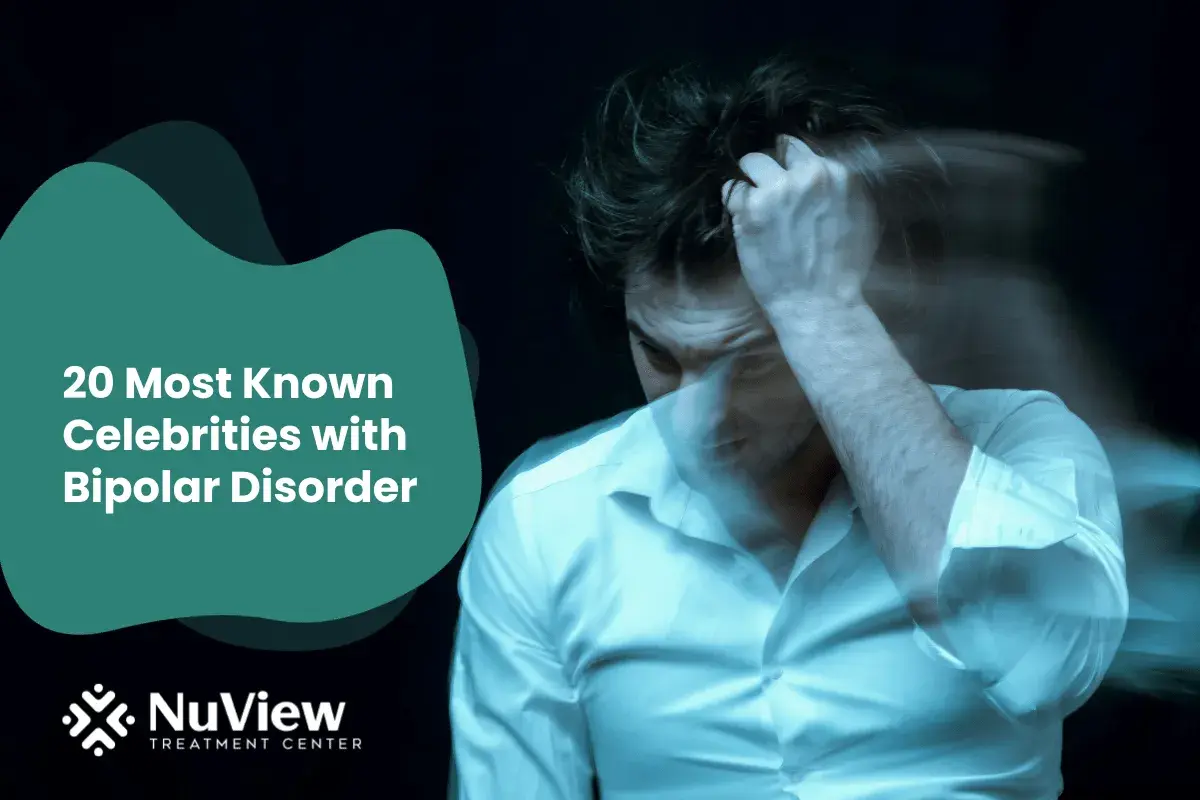
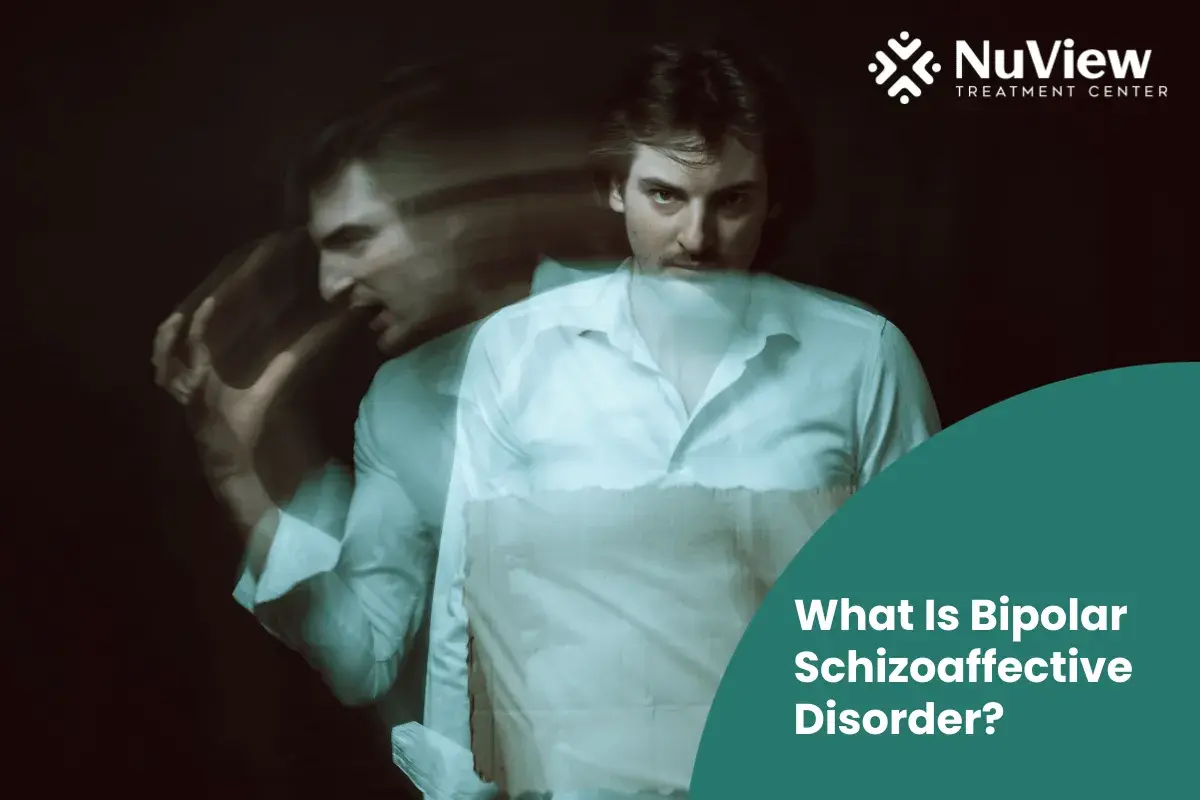
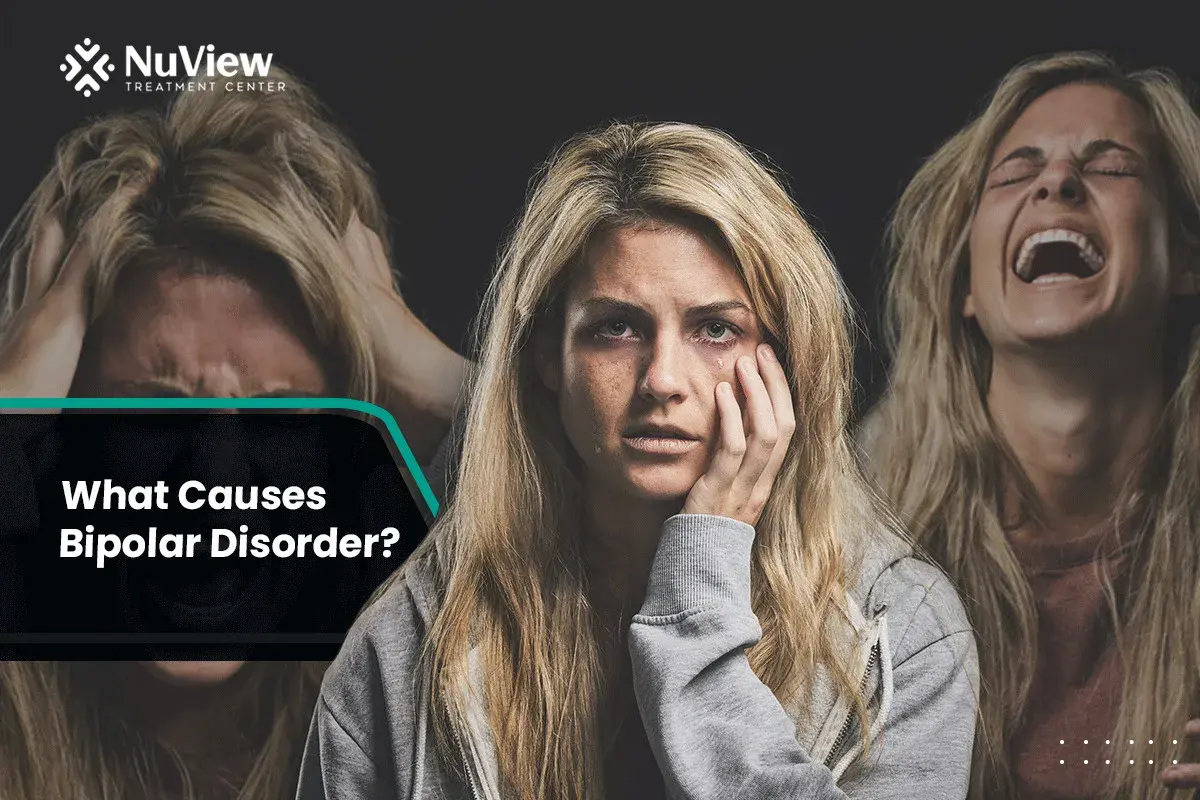



Written By
Dr. Ryan Peterson